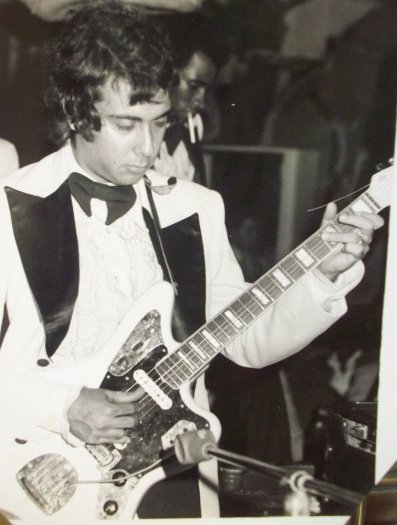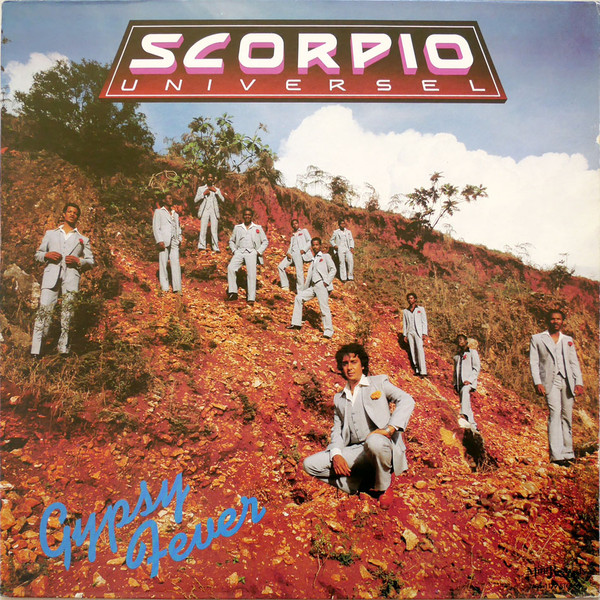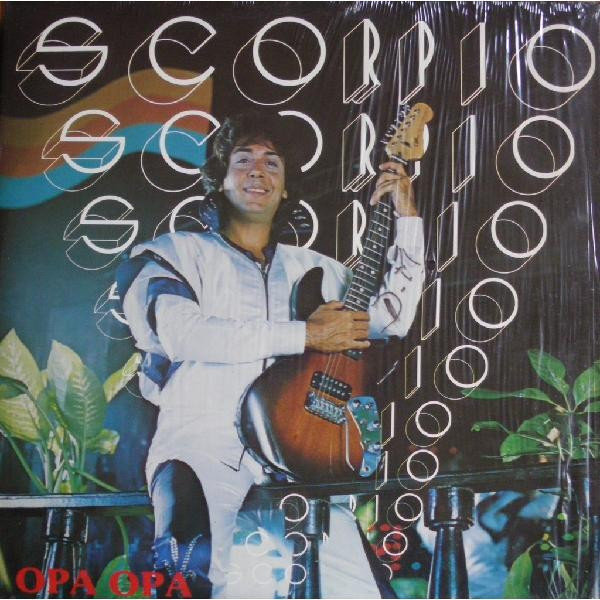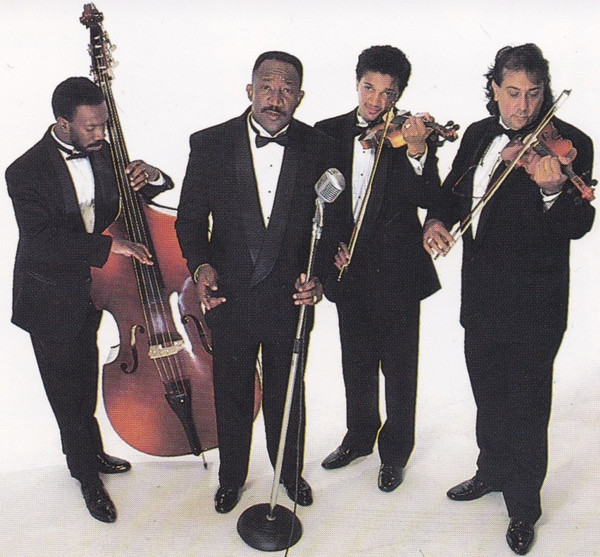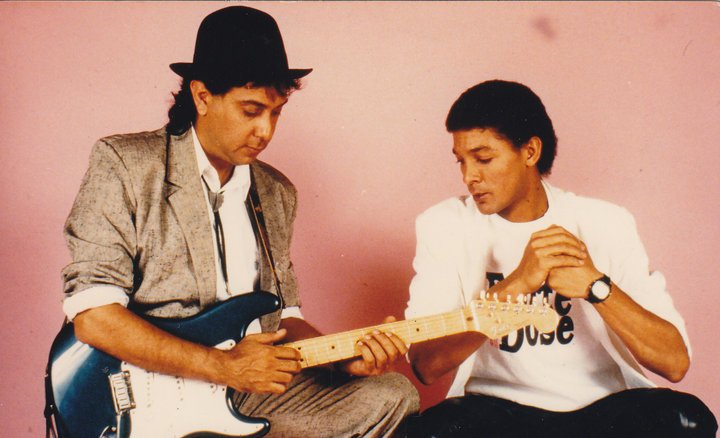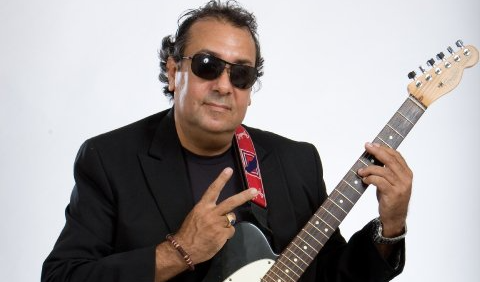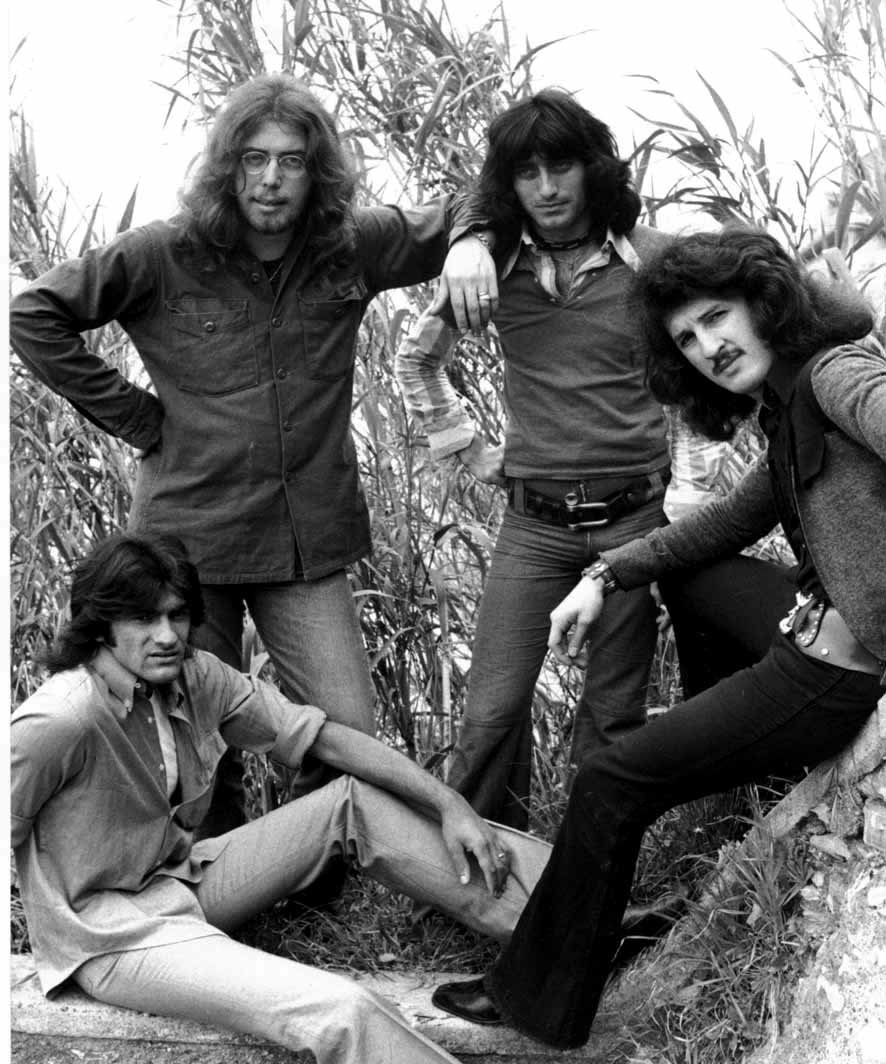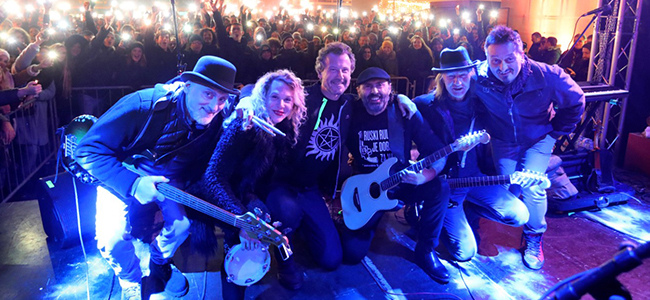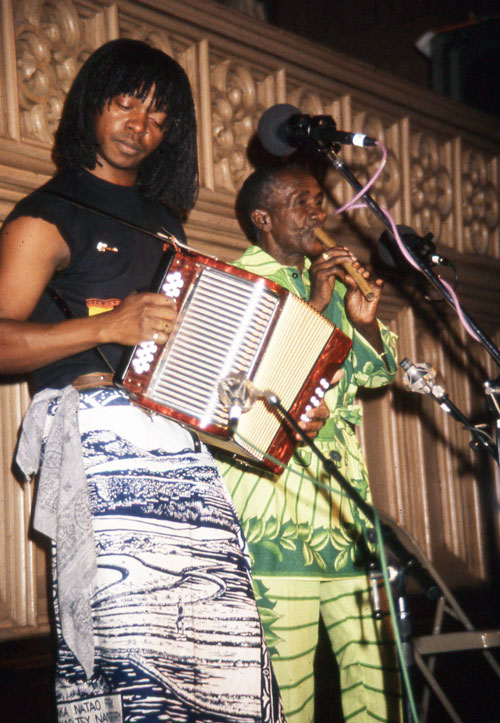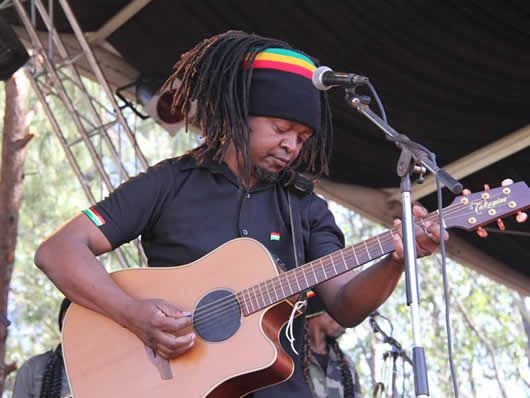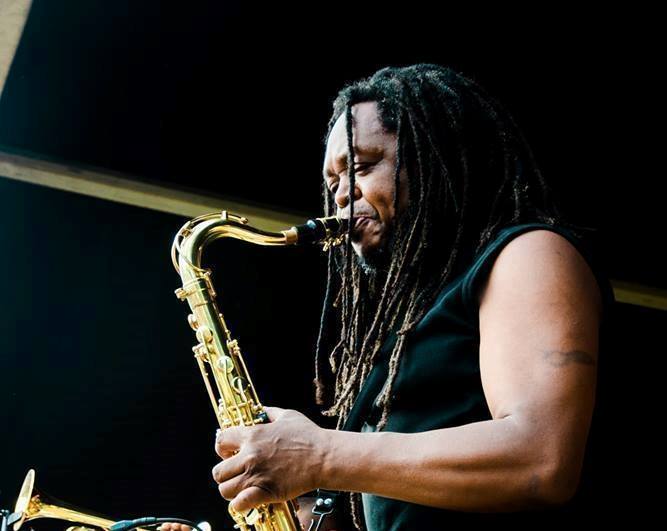Scorpio Universel - 1978 - Album II
Born in Haiti and of Italian descent, Robert Martino, started playing music and particularly the guitar at the young age of fourteen. One of his first major live appearance was at “Cabane Choucoune” with the creator of Compas Direct Nemours Jean Baptiste. Compas Direct sometimes spelled “Kompa” is the popular rhythm and music from Haiti.
Robert Martino is one of the main creator of “Mini Jazz” a movement in Haitian music that started in the 1960’s with the worldwide emergence of The Beatles. This trend transformed Kompaby reducing the traditional number of musicians to only seven or eight.
In 1965, Robert Martino started playing with “Les Difficiles” de Petion Ville of Henry Celestin, Jean Robert Herisse (Porky), Emmanuel Charles (Mama), Sony Louis (Ti Boeuf), Fredy Berenault, Paul Edme, Billy Degand, ect …. They became instant neighborhood sensation with hits such as: “Min Paulo”, “Ce La Vi”, “Composition / Espoir”, “Kenscoff”, “Les Ombres Du Temps”, ect ….
In 1972, Robert Martino joined the legendary group Les Gypsies de Petion Ville. This band became notorious for its many classics such as “Patience”, “La Tulipe”, “A Cote”, “Courage”, “Toi et Moi”, “La Priye”, ect …. The band included such great musicians as Tico Pasquet, Reynold Nadere (Cincin), Max Badette. The group was an instant hit and played regularly at then famous night spot “Chez Maxime”. The band was also famous for its many great Carnival songs.
In 1977, Robert Martino took another turn when he became the lead guitarist for the famous group SCORPIO. He played alongside singers Olson Jean Louis and Gracia Jean Philippe “Ti Kit”. They became very popular and had hits such as “Map Mande Courage”, “Tande”, “Min Yayad La”, “Christianne”, “Opa Opa”. They played regularly at the “Caroussel Club”.
Robert Martino introduced in Kompamusic guitar effects like chorus, delay, fith Dimension, distortion, tube-mouth and other sounds. To date, Robert Martino has recorded over fifty albums. He has performed at Carnegie Hall in New York, Le Zenith in Paris, the Bayfront Park in downtown Miami, au Palais Des Congres in Canada, in New Caledonia with his sons and more ….. He has performed all over the world in countries such as: France, Martinique, Guadeloupe, French Guyana, The Dominican Republic, Dom-Tom, The Bahamas, Saint Martin, Togo, Benin, Ivory Coast, Canada, The U.S., The Turks and Caicos, ect…
Robert Martino has worked with many music giants such as: Celia Cruz, Claude Marcelin, Reynold Nadere, Ron Perez, Dadou & Tico Pasquest, Roberto and Reynaldo Martino, Alan Cave, Ralph Thamar, Stanley Toussaint, Cubano, Loubert Chancy, Shoubou, The Widmaer Family, Reginald Policard, Makarios Cesaire, Demer Seide, Fabrice Rouzier, Misty Jean, Eric Virgal, Orlane, Hoaraw, Kassav, Emeline Michelle, Ralph Conde, Tuco Bouzi, Henry Debs, Ronald Rubinel, Jocelyne Labylle, Christiane Valejo, John Doane, Hoja Seca, Shleu Shleu, Tabou Combo, Coupe Cloue, System Band, Skah Shah, Dieudonne Larose, Message, Jacques Sauveur Jean, Skandal, Zin, Lakol, Phantom, Nu-Look, T-Vice, Kreyol La, Hangout…
Known as the “LEGEND”, his favorite guitar players are: Carlos Santana, Jimmy Hendrix, Eric Clapton, Peter Frampton, Joe Satriani, Jimmy Page and Pat Matheny. In 2007, Robert Martino released his latest solo album “Oye Chica” that gathers yet some of his best work. Done in collaboration with long time partner Freddy, producers Ralph Conde & Jeff Wainwright, singers such as Misty Jean, Olivier Duret, Herly Jacques, Robert Martino is truly one of the great artist that Haiti has produced. Today, Robert Martino still records and performs regularly to the joy of his many fans.
http://facebook.com/robertmartino” http://facebook.com/robertmartino
www.myspace.com/robertmartino
TRACKLIST:
A1 Pélérinage
A2 Blinginding
A3 Ti Lu Lu Pe
B1 Noú Rivé
B2 Roots, Rock, Reggae
B3 Carnaval Cole' Sou Yo
Credits:
Bass – Jn. Robert Louis
Chorus – Mario Jn. Gilles, Pedro Souffrant
Composed By, Arranged By, Guitar [1st.] – Robert Martino
Congas – Roger Laurent
Drums – Georges Jn. Gilles
Engineer [Recording, Mixing] – Robert Denis
Guitar [2nd.] – Reynold Nader
Organ, Synthesizer, Piano – Claude Montreuil (tracce: Nathan Montreuil)
Other [Impressario] – Pierrot Al-Kal
Photography – Henry Célestin
Producer – Patrick Amson
Tom Tom, Gong – Eddy Louis
Trombone – Saur Gelin
Trumpet – Mario Denis
Written-By, Vocals – Olson Jn. Louis

